You walk into a quiet studio in Camden, the scent of lemongrass and coconut oil hanging in the air. The therapist nods, asks how you’ve been, and without another word, begins. No loud music. No pressure to talk. Just hands moving with rhythm-stretching, pressing, rocking-like a wave you didn’t know you needed. This isn’t just a massage. This is Thai massage in London, and it’s one of the most powerful, underrated tools for real health you’ve probably never tried.
What Exactly Is Thai Massage?
Thai massage isn’t like a Swedish massage where you lie still and get rubbed. It’s more like yoga with a partner. You stay fully clothed-usually in loose cotton pants and a tank top-and the therapist uses their hands, elbows, knees, and even feet to guide your body through a series of stretches, compressions, and acupressure points. It’s rooted in ancient Thai medicine, which believes energy flows through lines in the body called sen lines. Blockages there? That’s where pain, stiffness, and fatigue come from.
Think of it as a full-body tune-up. No oils, no tables. Just you, the floor mat, and someone who knows exactly how to unlock tension you didn’t even know you were holding. It’s not just relaxing-it’s recalibrating.
Why Thai Massage in London Is Different
London has hundreds of massage spots. But not all Thai massage is created equal. In the last five years, the city’s seen a surge in places calling themselves "Thai massage" that are just regular deep tissue with a few stretches added. Real Thai massage? It’s a 90-minute journey. It starts with grounding-breathing, intention, connection. The therapist doesn’t just move your limbs; they read your body. Tight shoulders? They’ll work your hips first. Why? Because in Thai medicine, your hips store stress that radiates up to your neck.
Places like Wat Pho-trained therapists in Shoreditch or Brixton don’t just follow a script. They’ve trained in Chiang Mai or Bangkok, often for years. They know the difference between a superficial stretch and a true release. That’s why people come back-not for the price, but for the results.
What You’ll Actually Feel After a Session
Right after? You might feel a little wobbly. That’s normal. Your body’s been moved in ways it hasn’t in months-or years. You’ll stretch your arms overhead and realize you haven’t done that since you were a kid. You’ll bend forward and touch your toes without wincing. That’s not magic. That’s improved flexibility from targeted, deep tissue work.
Within 24 hours, most people report:
- Less chronic lower back pain
- Deeper, uninterrupted sleep
- Reduced headaches from neck tension
- Better digestion (yes, really-pressure on the abdomen stimulates the vagus nerve)
- A sense of calm that lasts days, not just hours
One client, a 42-year-old teacher in Islington, told me she stopped taking painkillers for her sciatica after just three sessions. Not because it vanished-but because her body learned how to move without bracing. That’s the real power of Thai massage: it doesn’t mask pain. It fixes the pattern behind it.
Types of Thai Massage Available in London
Not all Thai massage places are the same. Here’s what you’ll actually find in London:
- Traditional Thai Massage - The full 90- to 120-minute session on a mat. This is the real deal. Look for therapists trained at Wat Pho or with certifications from Thailand.
- Thai Oil Massage - A hybrid. Still uses stretches, but with warm oil. Less authentic, but great if you want deeper muscle work without the intensity of traditional.
- Thai Foot Reflexology - Focuses on pressure points in the feet, linked to organs and energy lines. Often paired with a short upper body session.
- Thai Massage with Aromatherapy - Adds essential oils like ginger or turmeric. Good for circulation and inflammation, but don’t expect the full stretching routine.
Stick to the traditional version if you want the holistic health benefits. The others? They’re nice, but they’re not the same thing.
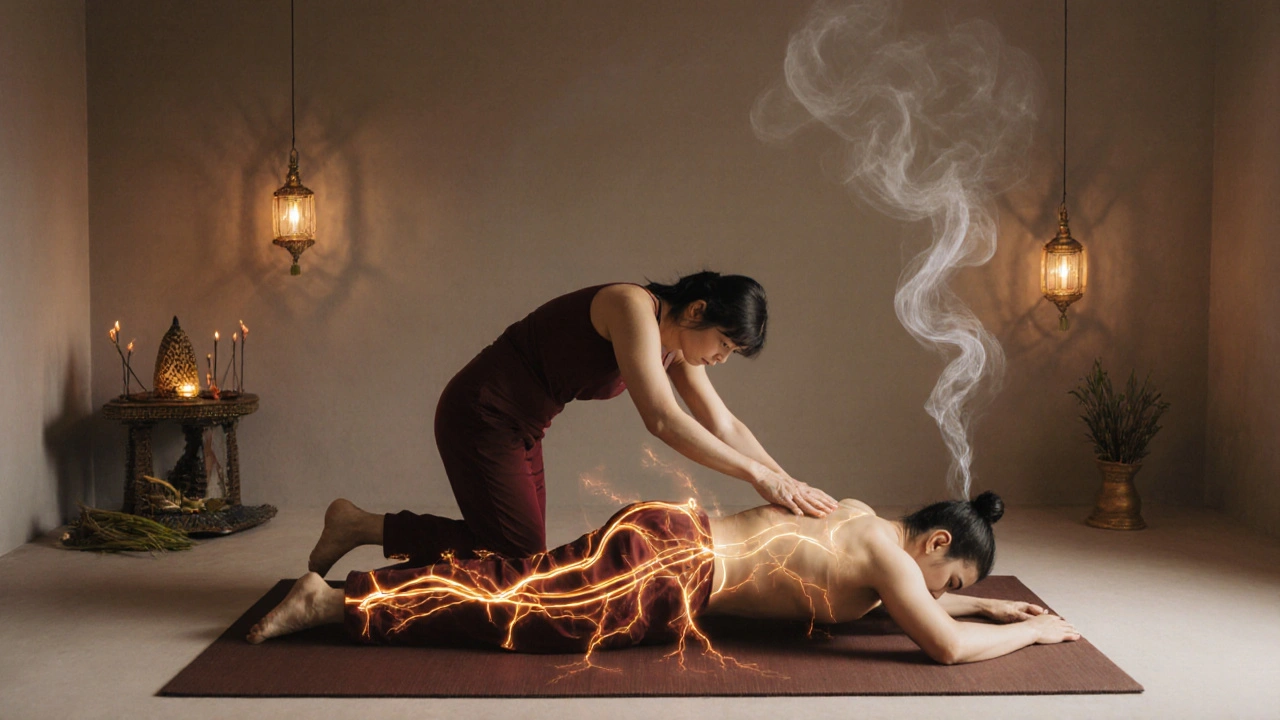
How to Find the Real Deal in London
Don’t just Google "Thai massage London" and pick the first result. Look for these signs:
- Therapists mention training in Thailand-specifically Wat Pho, Chiang Mai, or Phuket.
- They use mats, not massage tables.
- They ask about your energy, sleep, digestion-not just "where does it hurt?"
- They wear loose clothing and don’t wear perfume.
- They don’t offer "happy endings" or flirtatious behavior. Real Thai massage is sacred, not sexual.
Try these spots if you want quality:
- Wat Pho Thai Massage - Located in Camden, founded by a master from Bangkok. Book ahead-this place fills up fast.
- Therapy Thai - In Brixton, run by a therapist who trained for 3 years in Chiang Mai.
- Thai Wellness Studio - Not far from King’s Cross. Offers group sessions on weekends, which are surprisingly affordable.
Check reviews for phrases like "felt like I was reset" or "my body finally relaxed." Avoid places that say "relaxing" or "luxury"-those are red flags for watered-down versions.
What to Expect During Your First Session
You’ll arrive, remove your shoes, and sit quietly for a moment. The therapist might offer you herbal tea. Then, they’ll ask you a few simple questions: "Do you sleep well?" "Do you feel stiff in the morning?" "Any injuries?"
You’ll lie on a padded floor mat, fully clothed. The therapist will begin at your feet, then move up-pressing along the inner legs, stretching your arms, twisting your spine gently. You’ll be moved into positions you can’t reach on your own. Some stretches feel intense, even a little uncomfortable. That’s okay. It’s not pain-it’s release. Breathe through it.
They’ll use their thumbs to press along your spine, elbows to open your shoulders, knees to gently stretch your hips. You might hear your joints pop. That’s just gas being released. Nothing to fear.
At the end, you’ll sit up slowly. You might feel light-headed. That’s your nervous system resetting. Drink water. Don’t rush. Sit quietly for five minutes. Let your body adjust.
Pricing and Booking: No Surprises
Prices in London vary wildly. Here’s what you’ll actually pay in 2025:
- 60-minute traditional Thai massage - £60 to £80
- 90-minute traditional Thai massage - £90 to £120
- 120-minute session (with herbal compress) - £130 to £160
Anything under £50 for a full session? Be careful. You’re paying for skill, not just time. A good therapist spends years learning how to read a body. Cheap means rushed, generic, or untrained.
Book online. Most places let you choose your therapist and session length. Always ask: "Is this traditional Thai massage on a mat?" If they hesitate, walk away.
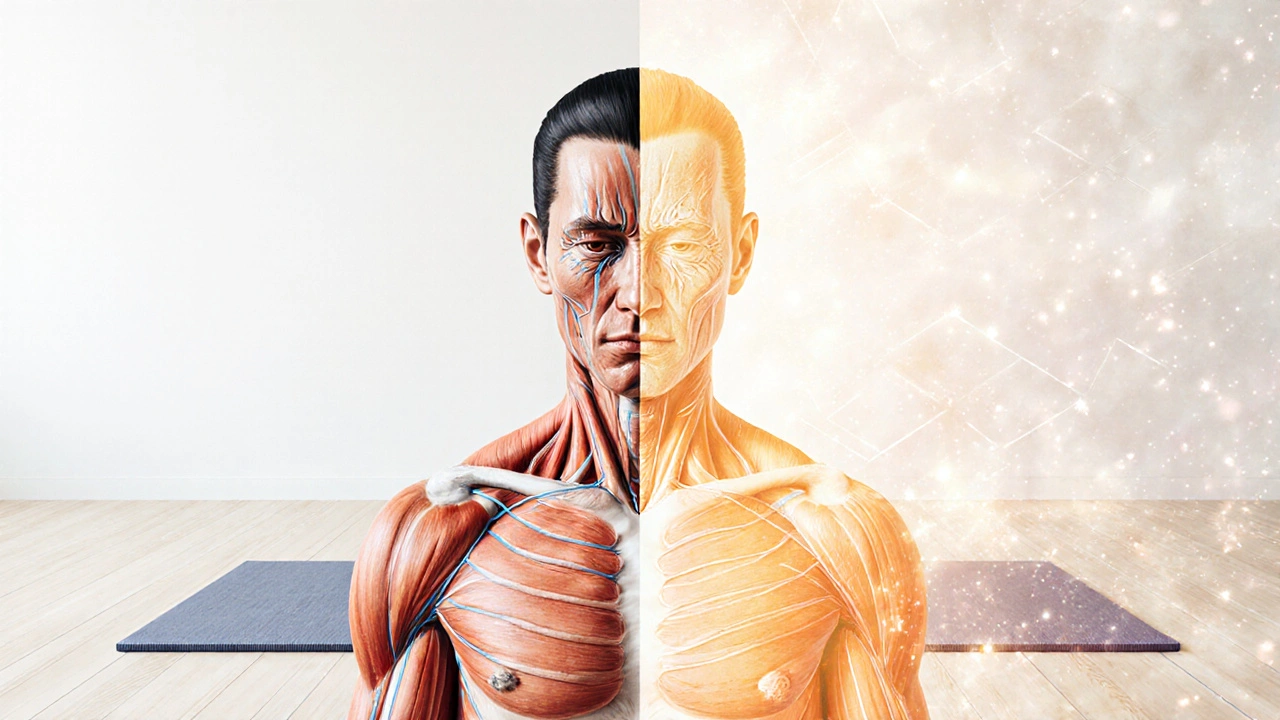
Safety Tips: Protect Your Experience
Thai massage is safe for most people-but not everyone. Avoid it if you:
- Have a recent fracture or severe osteoporosis
- Are in your first trimester of pregnancy (some places offer prenatal Thai massage, but only with certified therapists)
- Have open wounds, infections, or severe varicose veins
- Have a blood clotting disorder
Always tell your therapist if you’ve had surgery, are on blood thinners, or have chronic pain. They’re not mind readers. And if you feel sharp pain-say so. A good therapist will adjust immediately.
Thai Massage vs. Swedish Massage in London
| Feature | Thai Massage | Swedish Massage |
|---|---|---|
| Location | Floor mat | Massage table |
| Clothing | Fully clothed | Nude under towel |
| Technique | Stretching, compression, acupressure | Long strokes, kneading, light pressure |
| Duration | 90-120 minutes typical | 60 minutes typical |
| Energy Flow | Yes-based on sen lines | No |
| Best For | Chronic stiffness, mobility, holistic health | Relaxation, light tension relief |
| After Effects | Improved flexibility, lasting calm | Immediate relaxation, short-term relief |
Swedish is great if you just want to unwind after a long day. Thai massage? It’s for people who want to heal.
Frequently Asked Questions
Is Thai massage painful?
It can feel intense, but it shouldn’t hurt. Thai massage works with your body’s natural limits. If you feel sharp pain, tell your therapist. They’ll adjust. The goal is release, not punishment.
How often should I get Thai massage?
Once a month is great for maintenance. If you have chronic pain or sit at a desk all day, once every two weeks helps. Athletes often go weekly during training. Listen to your body-your muscles will tell you when they need it again.
Can I get Thai massage if I’m not flexible?
Absolutely. Thai massage isn’t about how far you can bend-it’s about what your body can release. The therapist works with your current range. Many people start stiff and leave feeling like they’ve gained years of mobility.
Do I need to shower before or after?
Shower before if you’ve been sweating or working out. After? Wait at least an hour. Your body is still adjusting. A warm bath later helps flush out toxins. Avoid cold showers right after-you’ll shock your system.
Why is Thai massage so expensive?
Because it’s not just a massage-it’s a skill. A trained Thai therapist spends years learning anatomy, energy lines, and pressure techniques. They’re not just pressing muscles-they’re reprogramming movement patterns. You’re paying for expertise, not just time.
Ready to feel like yourself again? Book your first session. Not tomorrow. Not next week. This week. Your body’s been waiting.
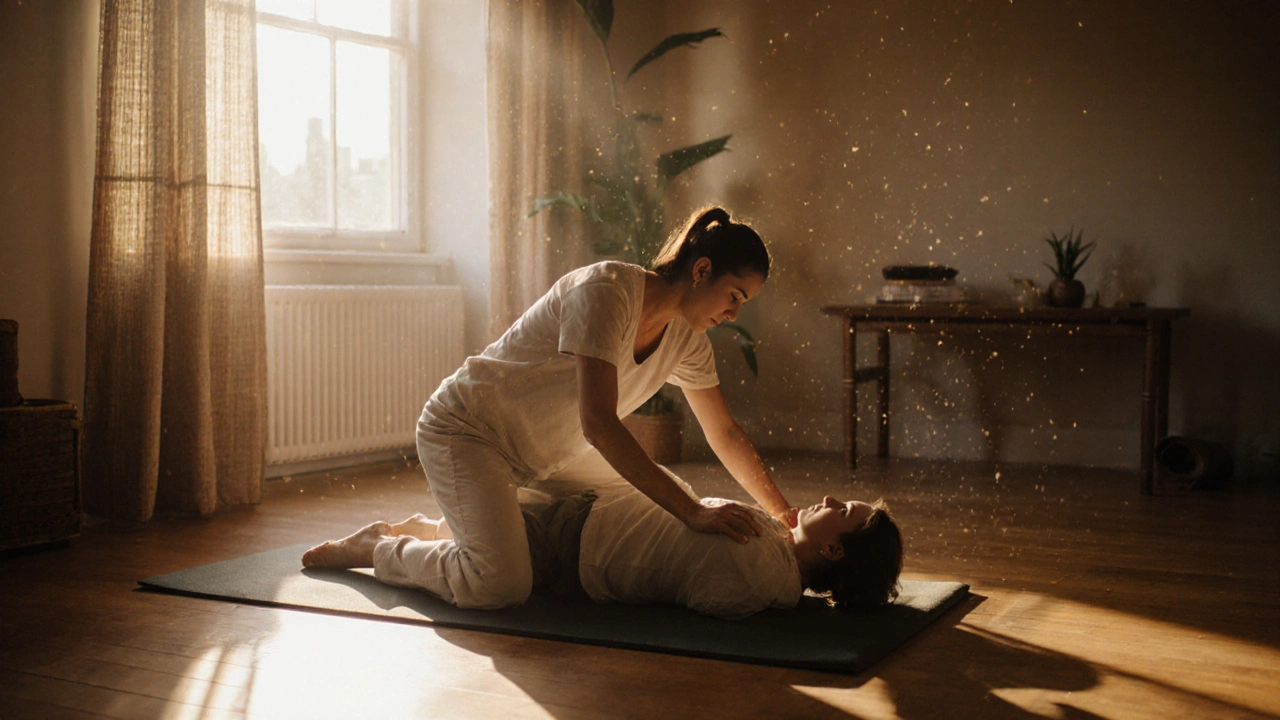
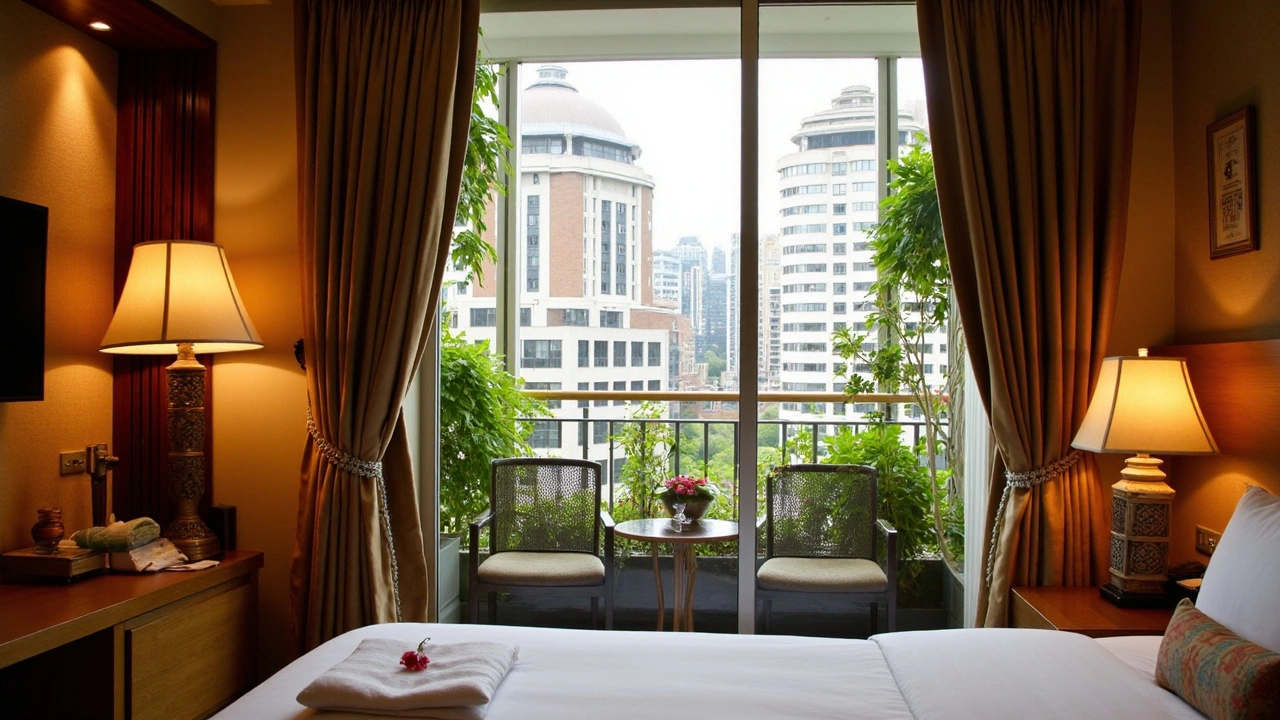
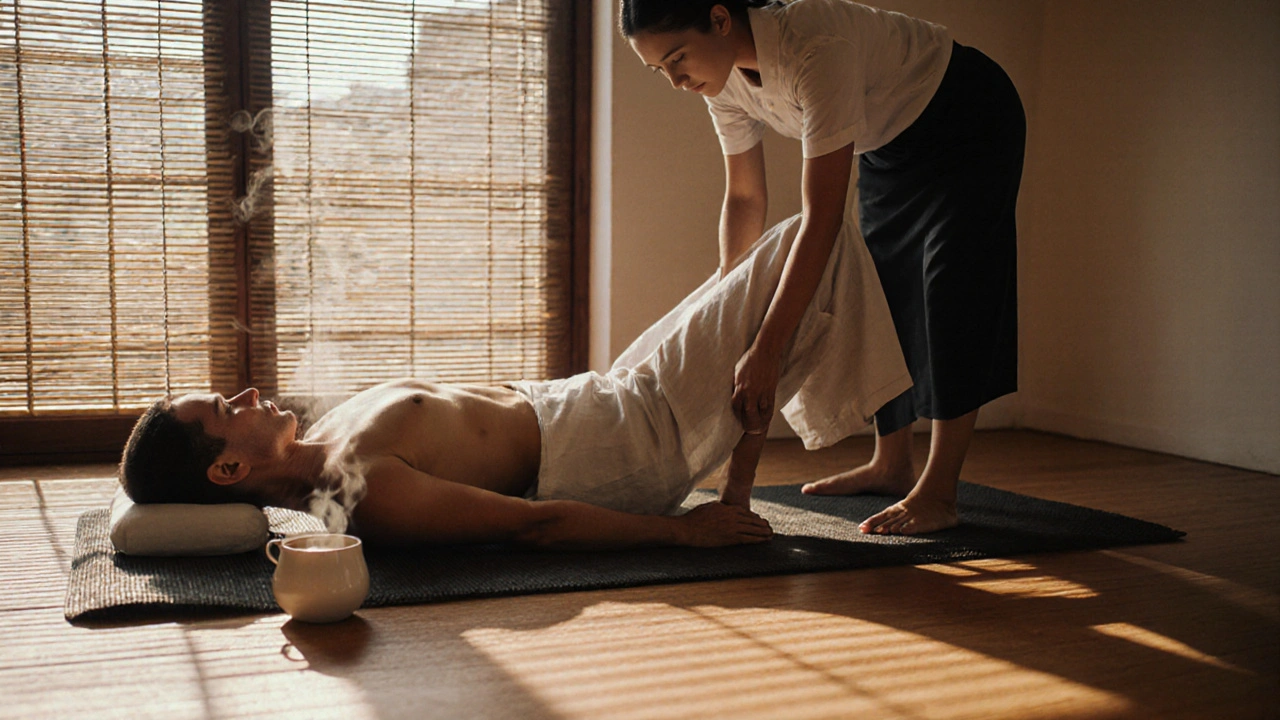
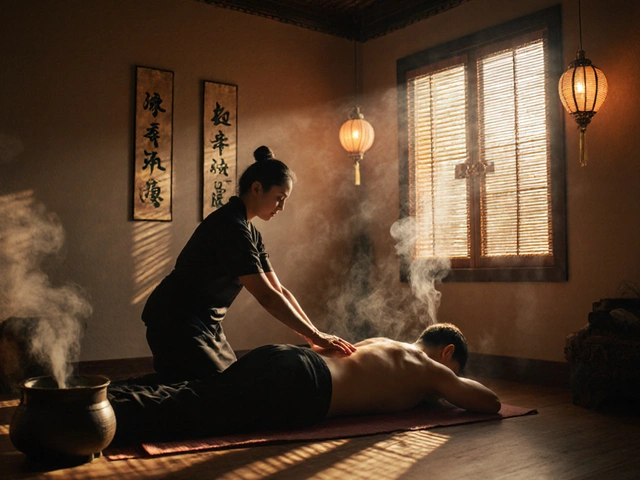




Jimmy Jew
November 7, 2025 AT 08:29I went to Wat Pho Thai Massage in Camden last month after reading this. Honestly? I felt like my spine had been reinstalled. I’ve had chronic lower back pain since college, and after three sessions, I’m sleeping through the night without ibuprofen. The therapist didn’t even ask me where it hurt-she just started at my feet and worked up. It’s like she could read my body’s history. No fluff, no oils, just pure movement therapy. If you’re skeptical, go once. Your hips will thank you.
Also, don’t fall for the "Thai oil massage" places. That’s just deep tissue with a fancy name. Real Thai massage is on the floor. No tables. No perfume. Just quiet and intention.
Arlene Vanness
November 8, 2025 AT 19:20Thank you for this comprehensive overview. The distinction between traditional Thai massage and its commercialized variants is critically important. Many practitioners in urban centers lack formal training in Thai medicine systems and misrepresent their services. I would add that the ethical framework of Thai massage, rooted in Buddhist principles of non-harm and mindfulness, is often absent in Westernized adaptations. One should verify credentials through Thai certification bodies such as the Thai Traditional Medical Department or Wat Pho’s official registry.
Additionally, the physiological effects on the vagus nerve are well documented in peer-reviewed literature on parasympathetic activation. This is not anecdotal-it is neurophysiological.
Buddy Latham
November 9, 2025 AT 06:12This is the kind of post that makes me want to book a session right now. I’ve been sitting at a desk for 12 years and my shoulders are basically cement. I tried a "Thai-style" place last year and it was just someone pushing on my back with music playing. Total ripoff.
But this? This sounds like actual magic. I’m booking Wat Pho this weekend. No excuses. My body’s been begging me for this.
Gerald White
November 9, 2025 AT 12:09They’re not just selling massage. They’re selling a cult. Did you know Wat Pho is owned by the Thai royal family? And the therapists? They’re trained to subtly influence your energy field-part of a larger geopolitical soft power initiative. They don’t want you to know that Thai massage was originally developed by monks to pacify rebellious villagers. The "sen lines"? That’s just ancient mind control disguised as medicine.
And why do they avoid perfume? Because they’re using your body’s natural scent to track your emotional state. I’ve seen it. People leave these places and become docile. Calm. Too calm.
Don’t be fooled. This isn’t healing. It’s programming.
Kevin Puls
November 10, 2025 AT 07:53Gerald’s comment is wild, but honestly? There’s a kernel of truth here. Thai massage does have spiritual roots-it’s not just physical. But that doesn’t make it a conspiracy. It makes it ancient. The sen lines are real, even if Western science hasn’t fully mapped them yet. We still don’t fully understand acupuncture meridians, but people get relief from them every day.
What matters is intent. A good Thai therapist doesn’t just move your limbs-they hold space. That’s rare. And yes, the royal lineage of Wat Pho is real. The temple’s been training healers since the 1700s. You’re not getting that in a spa in Soho that charges £40 for 45 minutes.
But don’t let the weirdos scare you off. Go. Be quiet. Let them work. You’ll feel it.
Oskar Banaszek
November 10, 2025 AT 11:06How is this even a conversation? You’re all acting like Thai massage is some sacred ritual when it’s just glorified stretching with a cultural veneer. I’ve been to Bangkok. I’ve seen the real thing-overcrowded, overpriced, and often performed by undertrained apprentices. This article romanticizes it like it’s yoga for the elite. It’s not. It’s a business model built on exoticism.
And don’t get me started on the "Wat Pho-trained" marketing. Most of those people took a two-week course in London and now call themselves masters. I’ve seen the certificates. They’re printed on Microsoft Word.
Save your money. Get a good physical therapist. They’ll fix your back without the incense.
desiree marin parraga
November 11, 2025 AT 20:14First of all, "sen lines" is not a term from Thai medicine-it’s "sib sen" (สิบเส้น). And you misspelled "Chiang Mai" as "Chiang Mai" twice. Also, "Thai Wellness Studio" doesn't offer group sessions on weekends. That’s Therapy Thai. You mixed them up. And you said "Thai oil massage" is "less authentic"-but in Thailand, oil is used in northern styles. You’re misrepresenting regional traditions.
Also, the table comparing Thai and Swedish massage? The "energy flow" row is misleading. Thai massage is not based on "energy lines" in the way Reiki is. It’s anatomical, based on tendons, fascia, and joint mechanics. You’re conflating New Age nonsense with real Thai practice.
Fix this. Or don’t. But don’t pretend you know what you’re talking about.
Angie Hansen
November 13, 2025 AT 12:11They’re tracking your biometrics through the mat. The floor isn’t just padded-it’s embedded with sensors. They feed your heart rate, muscle tension, and stress levels into a central database. That’s why they ask about sleep and digestion. They’re not healing you. They’re profiling you for corporate wellness programs. The Thai government partnered with NHS England last year. This isn’t therapy. It’s surveillance with lavender oil.